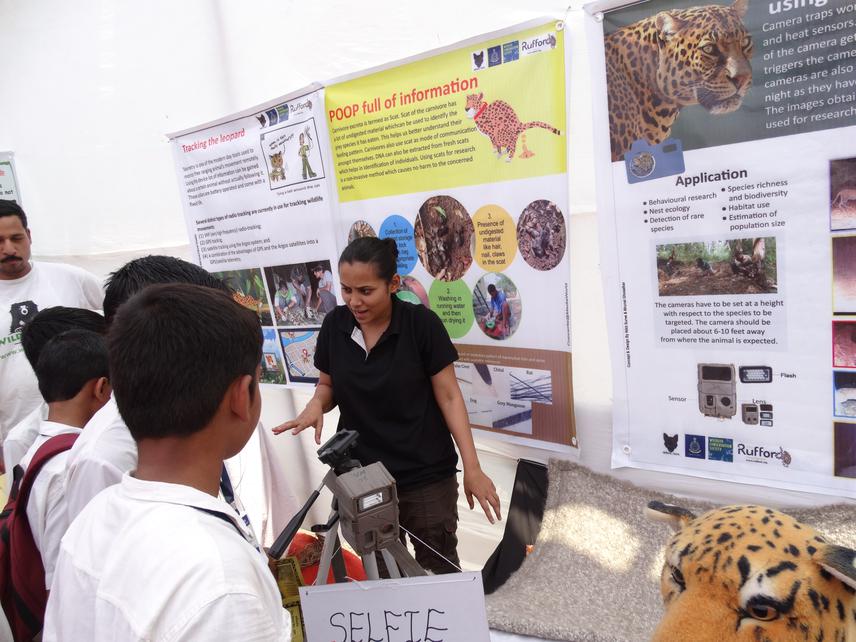Mrunal Milind Ghosalkar
Other projects
28 Jul 2017
Doodling the Cat (Sequel II): Using Youth as a Strong Community Connection to Sensitize Locals on Safely Sharing Space with Leopards to Reduce Conflicts
Shared spaces can be challenging especially if the people don't understand the wild animals. It could lead to situations that can adversely affect human safety and property loss to animals like the leopards. We propose to target all the schools in high leopard problem areas in Pune, Maharashtra to make the children aware of the precautions they can take to reduce problems they and their families can face due to the presence of leopards in the shared landscapes. We will be using art to convey our message.

Western Maharashtra is an agricultural landscape with high density of people, the presence of large carnivores such as leopards, wolves and hyenas as well. Leopards are however implicated in attacks on people as well as on livestock. Our preliminary work indicates that children are not aware of the precautions they need to take in order to reduce attacks on their families as well as to reduce livestock losses due to leopards in shared spaces. We need to use scientific knowledge about the animal as well as traditional knowledge so that problems are minimized to both humans and leopards. We would like to inform the people in the region of the best practices in dealing with leopards and other wild carnivores in the area via the school children. A primary part of project involves in acquiring information from forest department which includes data for number and locations of leopard sightings and attacks on human, livestock depredation, leopard trapping and relocation. Based on the information, we will locate hotspots of trapping pressure.
We will identify tribal settlements in the nearby areas where via interviews with the older people we can obtain information on their traditional methods of dealing with leopard presence in their areas, as well as methods they use to reduce livestock losses. Aditi Deo, an artist will translate the traditional knowledge as well as the scientific knowledge obtained from recent studies on shared spaces into art form. The art will include simple Do’s and Don’ts. We will approach the schools through the forest department as it is very important to also make the forest department a major partner of this work for any long term change.
A school ambassador for “Safer lives in leopard areas “will be democratically chosen by the students. We will use the people that the leopard ambassadors have reached out and compare their understanding of the issue, as well as document any changes they have made in their behaviour and the way they keep their livestock with people who have been randomly chosen and who have not had any information that we will provide on safer shared spaces.